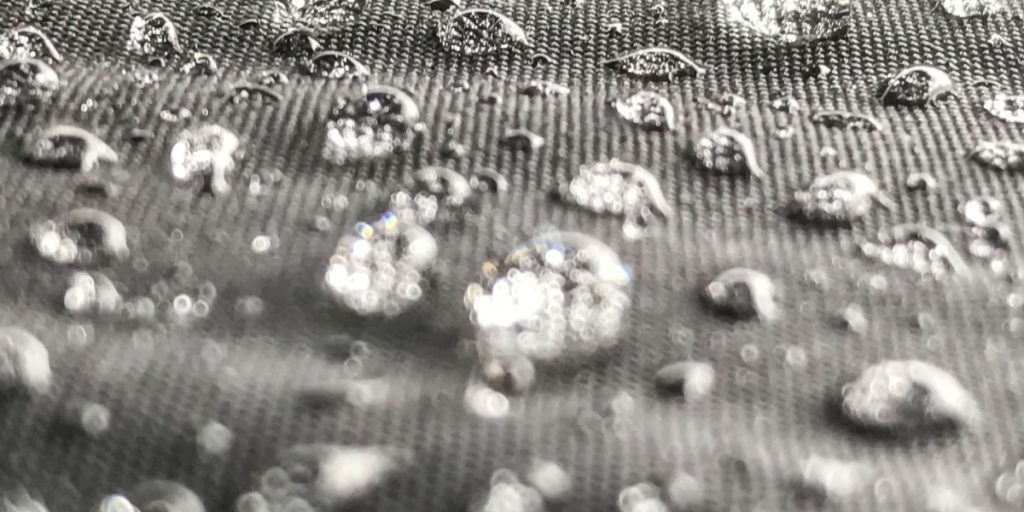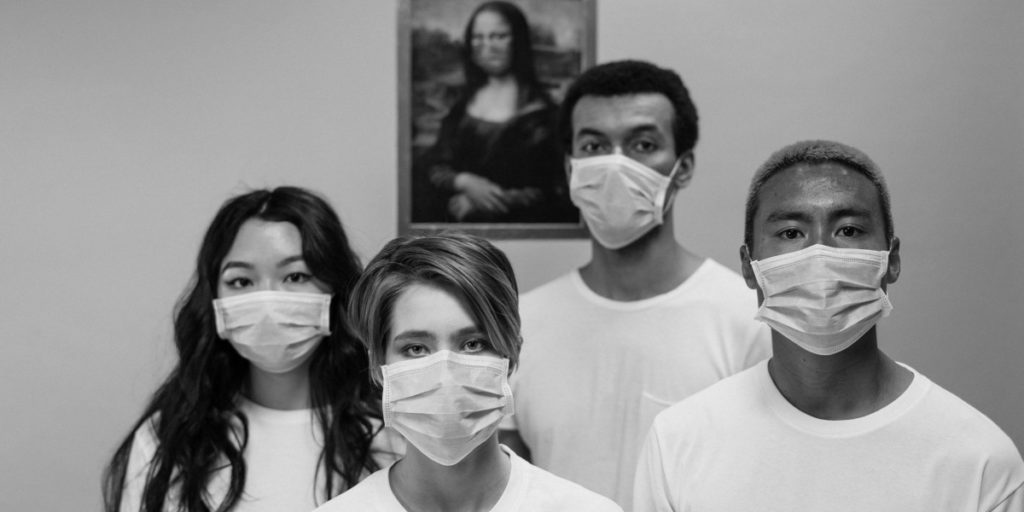My colleague Steve de Gruchy,1Steve taught in the School of Theology and Religion at the University of Kwa-Zulu Natal in South Africa. He drowned in 2010 during a rafting trip on the Mooi River. Steve’s death while with his family on a holiday adventure is a tragedy; it is also a reflection of his passion to live exuberantly. Steve’s channeled this passion with a keen awareness that exuberance was not the same as extravagance and his deep, abiding commitment to a Biblically informed social justice grounded every part of his life and career. His contributions to the field of religion and public health remain (though God only knows what else he would have produced) and he is missed. in 2009, wrote a theological paper entitled, “Dealing With Our Own Sewage.”2Steve de Gruchy, “Dealing With Our Own Sewage: Spirituality and Ethics in the Sustainability Agenda,” Journal of Theology for Southern Africa 134 (July 2009): 53-65. I periodically teach this paper in my classes in the study of religion and public health because it offers students in public health, religious studies, and theological studies (the students I teach) a glimpse of a rich theological reflection, drawing on insight from liberation theology, on a pressing ecological crisis—access to adequate, clean water.
Clean Water Through the Lens of Liberation Theology

During this outbreak, I have found myself returning to the theological wisdom in Steve’s paper. Drawing on the key theological insight from liberation theology—that the incarnation, life, and ministry of Jesus reveal God’s preferential option for the poor—Steve explores the systemic sin that creates an entire social fabric in which some have access to clean, readily-available drinking water while others do not. Examining the challenges of the availability of water through the lens of liberation theology, Steve poses a pressing ethical and theological question: how do we reconcile an affirmation that God demonstrates a preferential option for the poor when we realize that diseases also display that same preferential option?
Steve wrestles with this question by arguing that the global church needs to balance two narratives found in the Hebrew Bible: the Exodus story of God freeing the Israelites from bondage in Egypt and the Genesis narrative of God’s good creation. The Exodus story speaks to those who struggle each day to identify sources of clean water for their own families while the Genesis narrative is a reminder to those who live in places where plentiful water flows from a tap in the home. Exodus, the central Biblical narrative that informs liberation theology, offers a reminder of God’s abiding love for those living in the midst of hardship and death while those in power look the other way and fail to acknowledge their own involvement in the conditions that led to such conditions. The Genesis story reminds us of God’s good creation and the reality of human sin that distorts and corrupts that creation. In this paper, Steve argues that both stories are needed to inform a faithful response to the current water crisis. The Exodus narrative reminds us of God’s ongoing work in every moment of history to bring about delivery from injustice and offer us a vision of a promised land overflowing with milk and honey, full of the necessary resources to meet human needs. Such a vision can offer realistic hope to those who facing the challenges of water scarcity. In contrast, the Genesis narrative reminds us of human complicity in the mechanisms of sin that destroy God’s good creation and distort our vision for how God intended the creation to be used. Such a reminder should give pause to those of us who happen to live in places with ready access to water, asking us to interrogate the political, social, and technological systems that make water available for us and ask whether such power that offers us this resource is also used to limit access to that same resource for others.
The narrative of Exodus reminds us of God’s intervention in history to make a way where there is no way; our faithful response to that story is thanksgiving for God’s love and discipleship to have the courage to follow. The narrative of Genesis reminds us that while God created this world and named that creation very good, human arrogance, fear, and greed have corrupted this creation; our faithful response to that story is confession and repentance. We need both stories today. Without the Genesis story to remind faithful, loving and imperfect people that part of faith is to acknowledge our own complicity in systems of structural sin that enrich us while leaving others wanting, reciting the story of Exodus alone can lead to a false hope that such structural sin somehow magically dissipates as we deny how deeply entrenched it is (and us in it). Without the Exodus story to remind faithful, loving and imperfect people that part of faith is to step into the unknown and risk living in the new ways that God provides, reciting the story of Genesis alone stops with the tragedy of a fallen creation, our sinfulness, and the price of such sin.
Liberation Theology, Covid-19 and Systems of Inequity

Steve’s insights apply not only to the ecological crisis of water resources but also to this moment of the COVID-19 outbreak. We’ve lived for decades with the knowledge that systems of domination and exploitation have placed parts of God’s creation at risk for extreme and repeated drought; those with the power to affect change have not mustered the courage to change our ways. We’ve lived for decades with the knowledge that much of the prosperity of the wealthier nations was built by plundering the essential resources of poorer nations and exploiting the people living in those nations; those with the power to affect change have not mustered the courage to change our ways. Too many from the global north have given lip service to Exodus narratives even as we remained in our own walled-off gardens, continuing to nibble on the apple as the snake whispers false promises that blind us to the reality of sin and our participation in it. COVID-19 has revealed a global model that has been operative for generations—systems of inequity that have benefited some while others pay a price. It has done so by bypassing those systems, hitting the nations of Europe and the United States with greatest ferocity, demonstrating that those inside their own walled-off gardens cannot escape risk this time. We have a choice in front of us as this pandemic unfolds. One option is to work to rebuild the systems of sin—to double down on systems of global inequity while turning a blind eye to our sisters and brothers in need. The other option is to fundamentally change the story—to remember and be shaped both by the creation narrative in Genesis and the narrative of the Israelites’ release from captivity in Exodus. Choosing the latter option will require faithful action—confession, repentance, thanksgiving, and discipleship—not only as rituals in our churches but as ways of living and relating day to day, both locally and globally.
As the first global wave of this pandemic spreads to every part of the world, we see the struggle for both options playing out. We do not know whether those intent on maintaining and even re-enforcing the idolatry of inequity will prevail or whether those who are calling us to new and radical models of justice and equity will help restore the world we can’t yet imagine. What we do know about the future we cannot yet see is that it is being created right now by our varied individual and collective responses to this outbreak. One other Scripture from the Hebrew Bible might be useful in helping us decide as we seek to discern God’s ways of love and wisdom in these troubling days: “I have set before you life and death, blessings and curses. Choose life so that you and your descendants may live,loving the Lord your God, obeying and holding fast to God; for that means life to you” (Deuteronomy 30:19-20).
Christians will not live through this pandemic and then decide which option we will choose on the other side of it. On the contrary, that choice is already in front of us right now, in the midst of this pandemic. The only faithful option that restores a vision of life even in the midst of sickness and death is to love, obey, and hold fast to God. That is the only way we’ll risk caring not only for ourselves but also for the strangers in need whom Christ reminds us are our neighbors. That is the only way we’ll maintain infection control measures that will not only save our lives but reduce the spread to save others’ lives as well. And when this is over, that is the only way we’ll be able to return to the Bible and read the stories of Genesis and Exodus with any trace of faithfulness. That is the only way we’ll be able to confront the death-dealing of our structures and systems and enter into a new realm where the resources of the creation are equitably shared and communally sustained. So make your choice today and every day of this outbreak: choose life. Choose life, even in the midst of a pandemic that is killing so many. Choose life to testify to the truth of both Genesis and Exodus. Choose life, both in what you say you believe and by showing it through the things you do. Choose life now, in the midst of this outbreak, so that we and our descendants may truly live when this outbreak has passed.
- Creation, Liberation Theology, and COVID-19 - June 4, 2020

